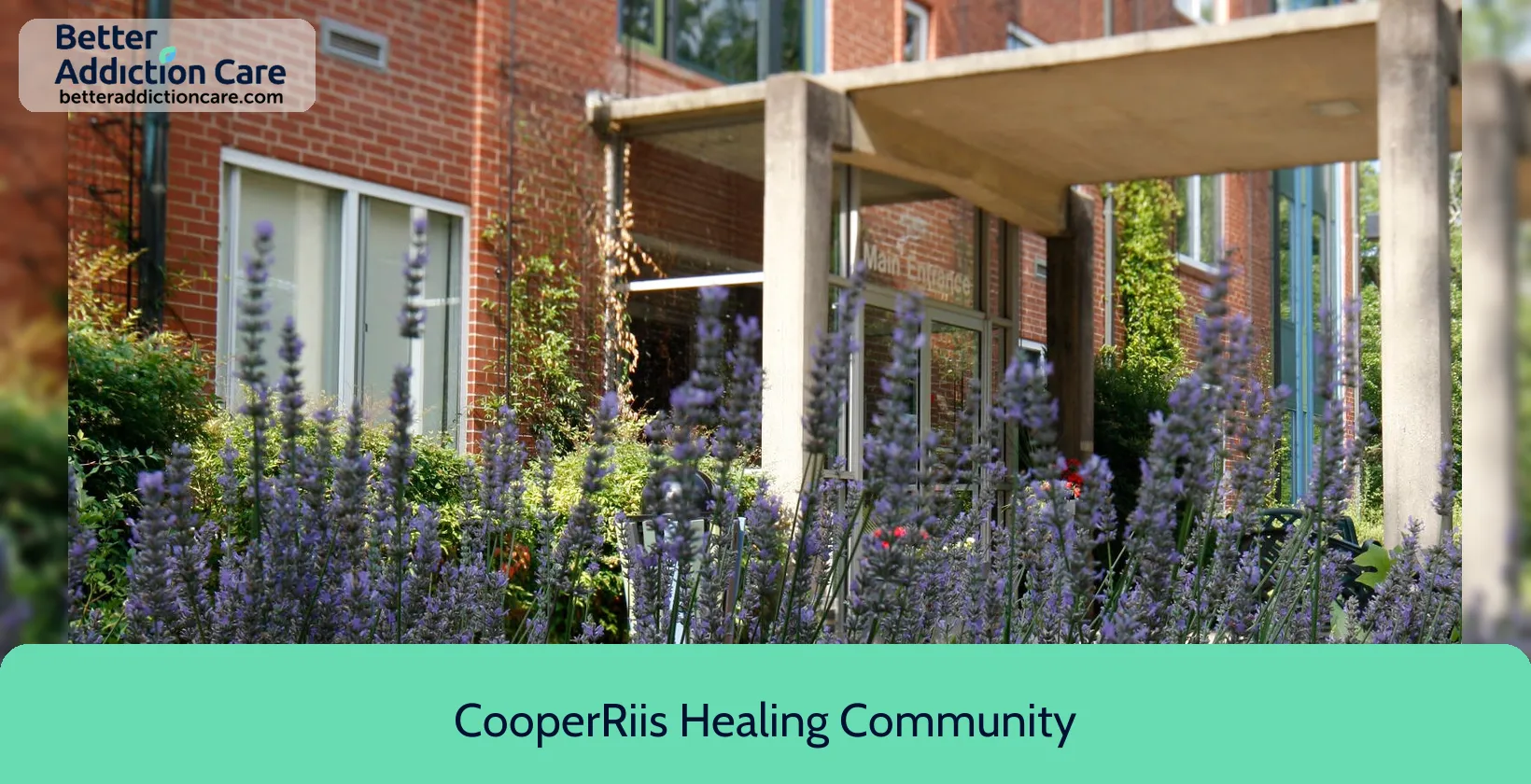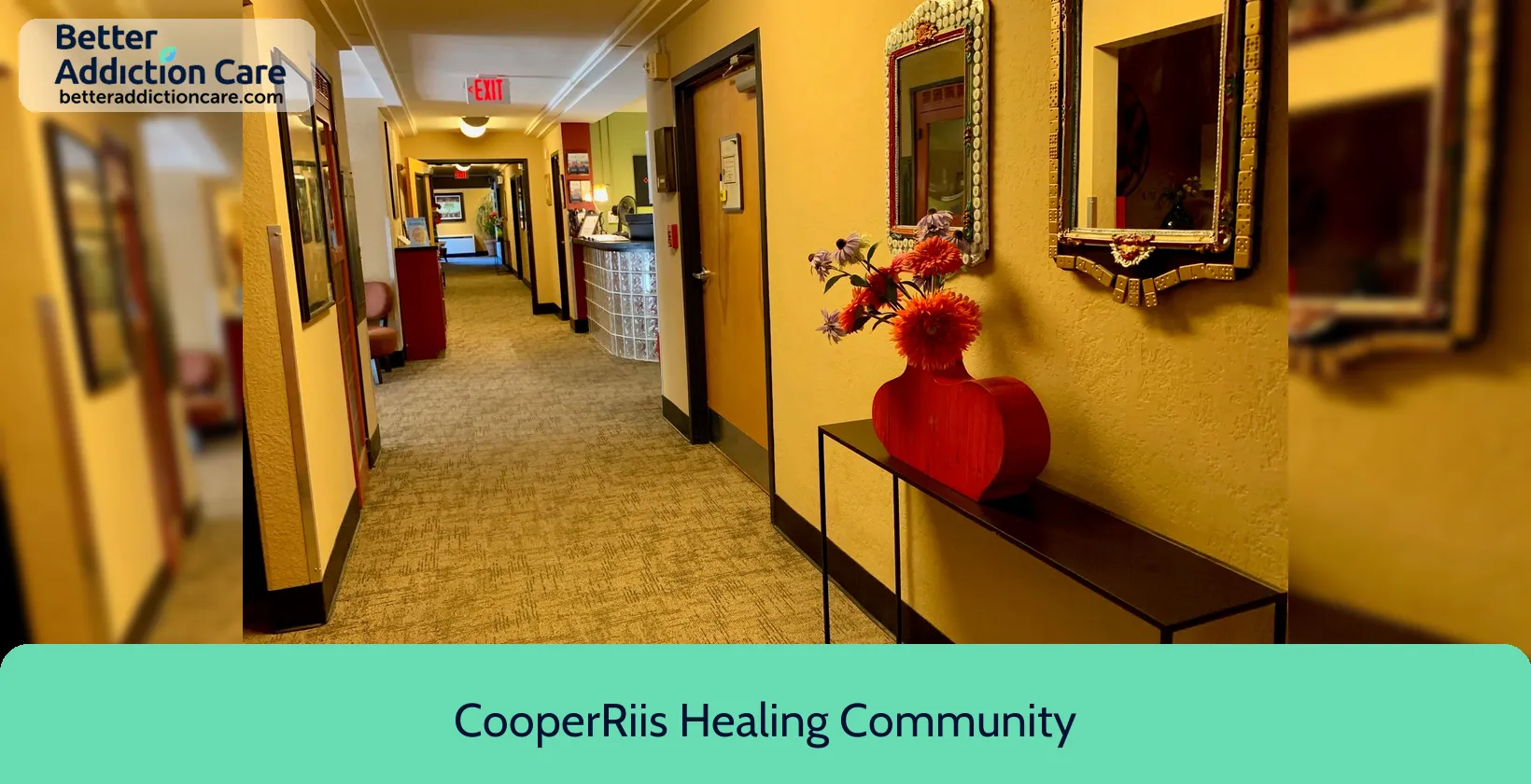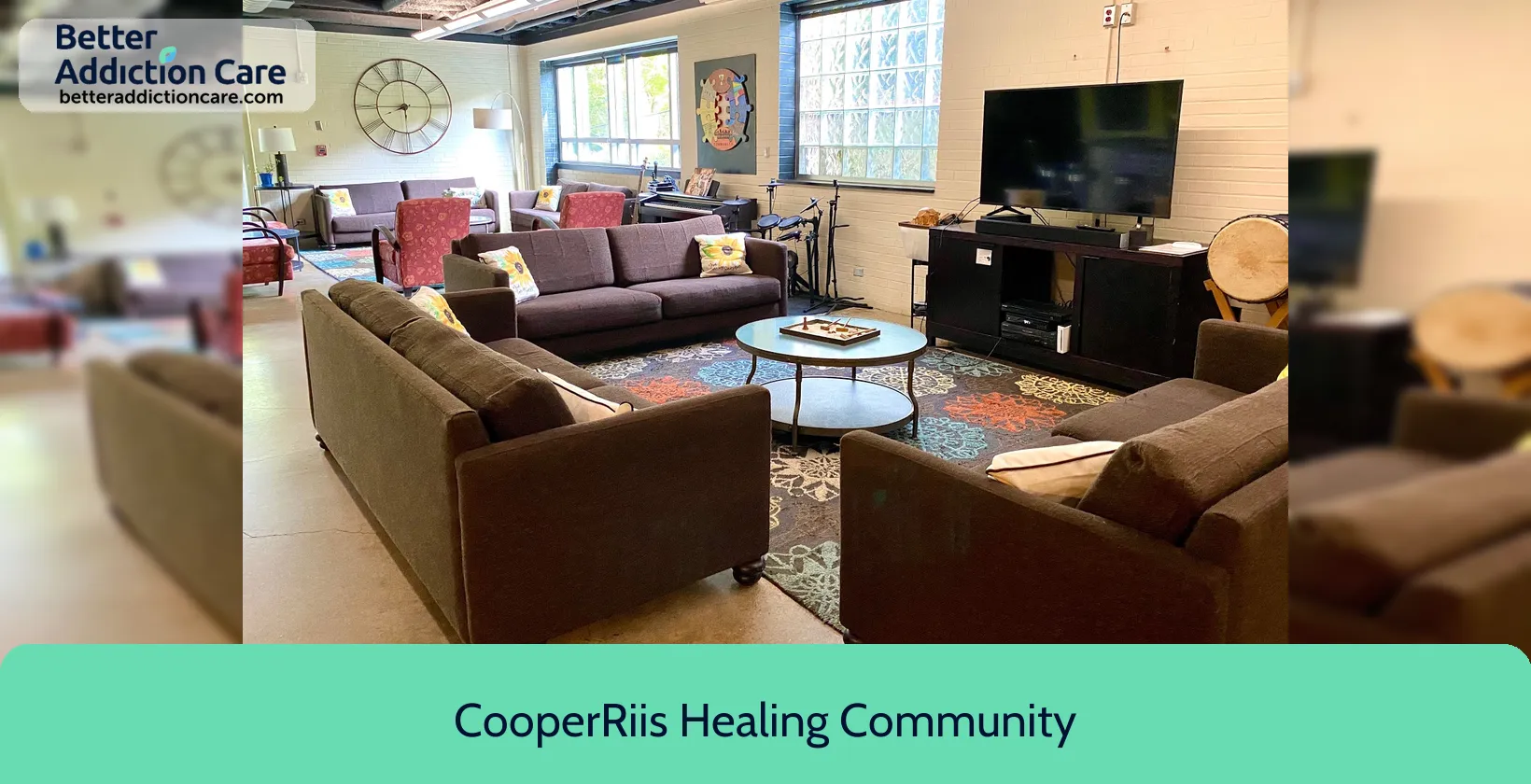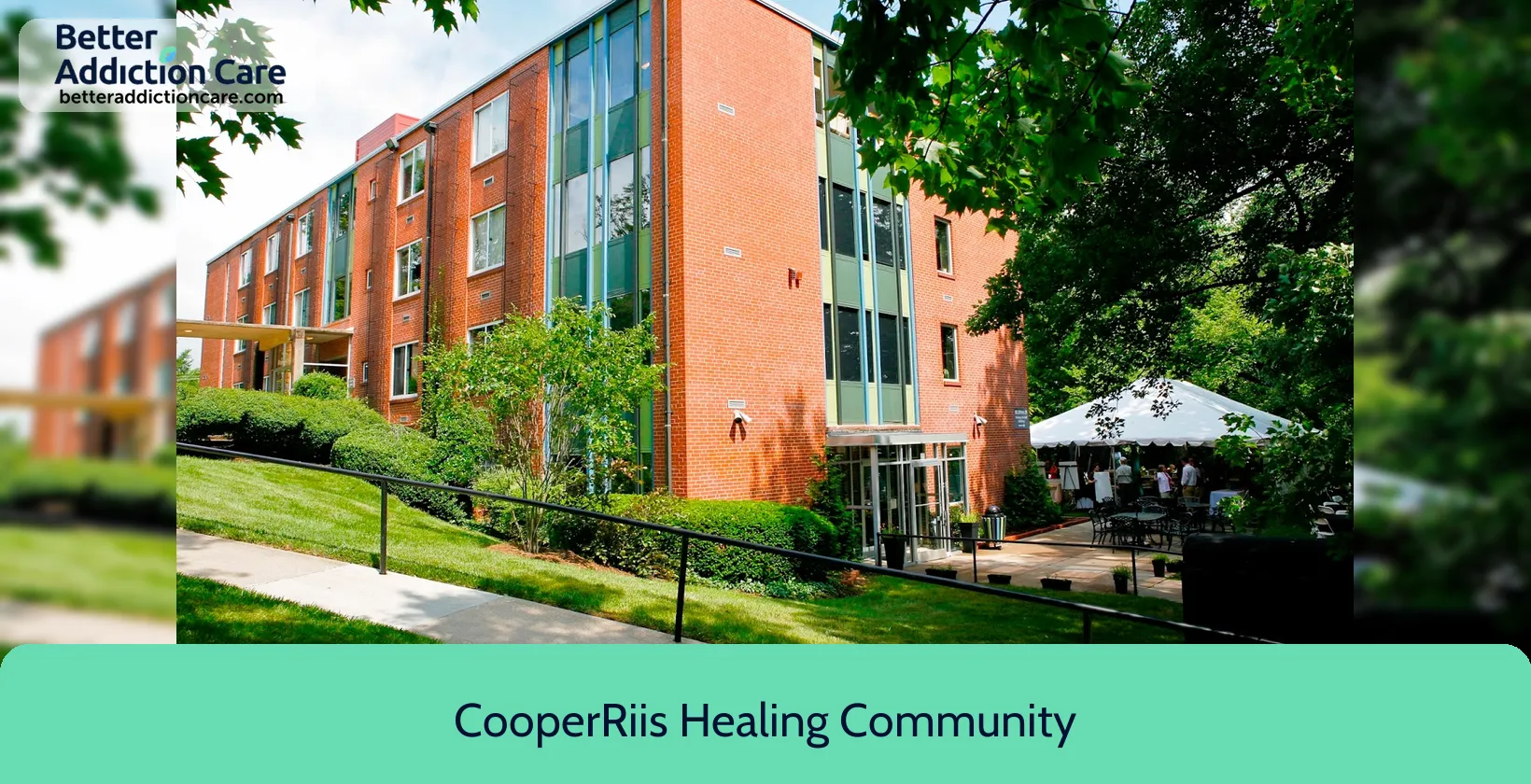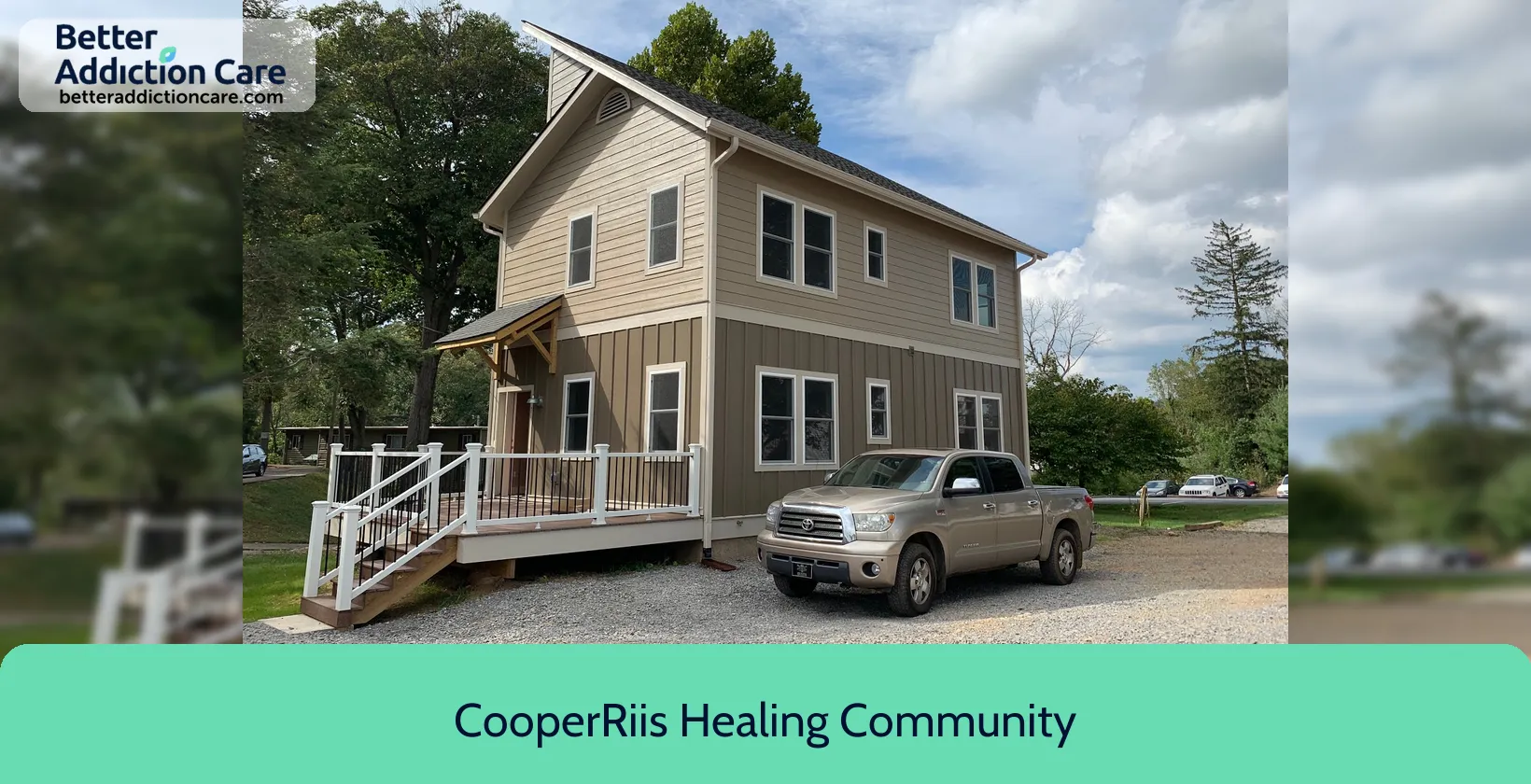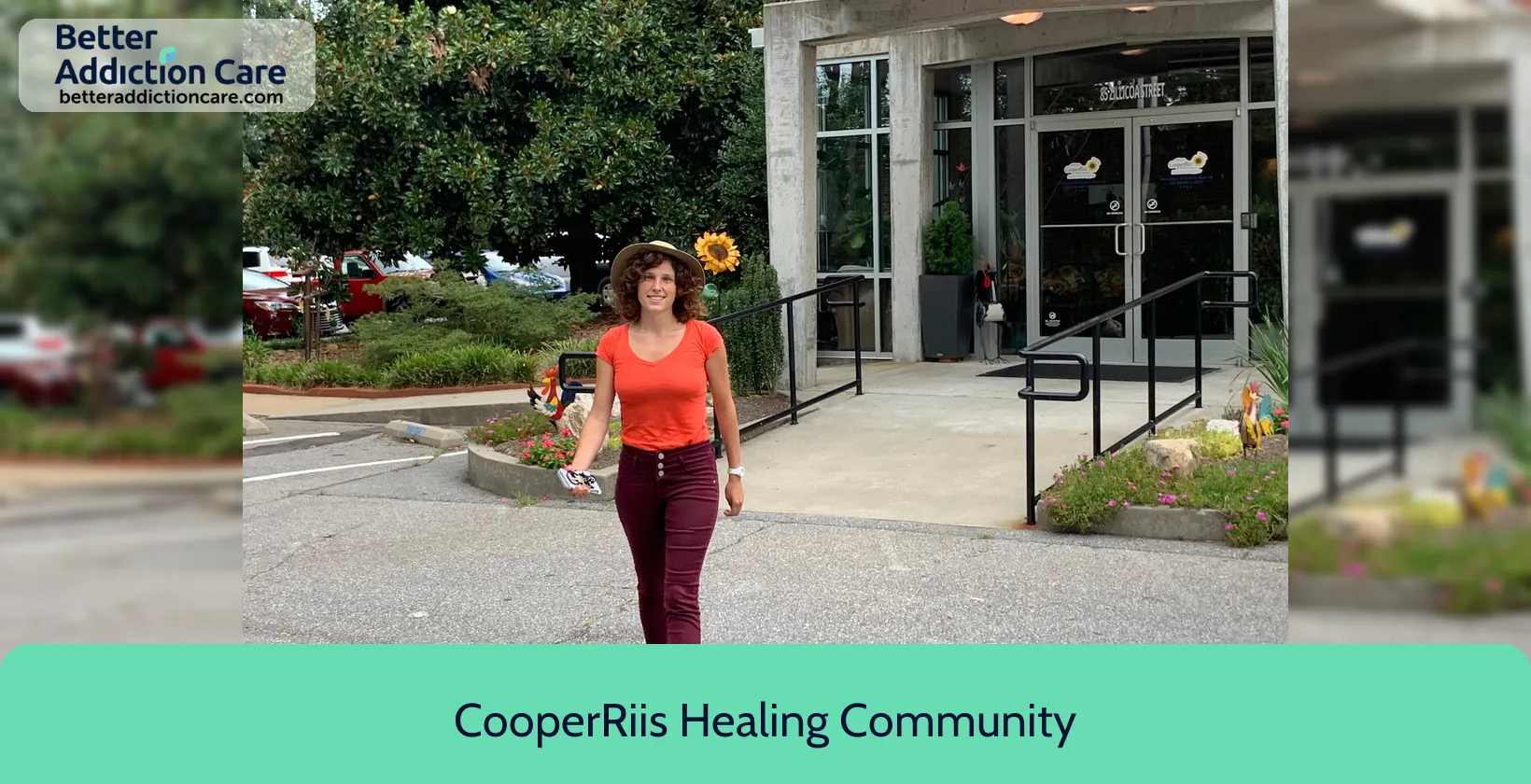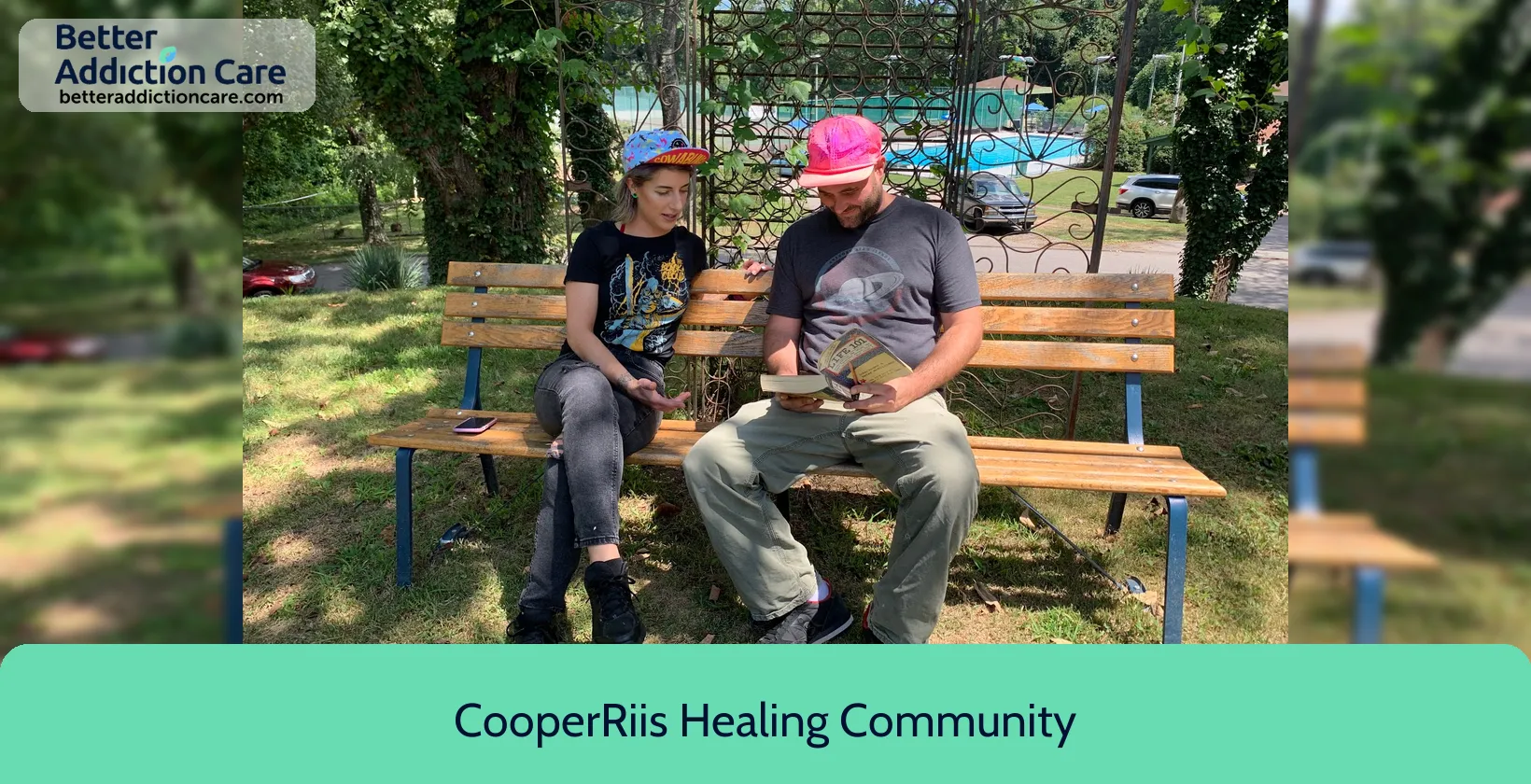CooperRiis Healing Community
Overview
CooperRiis Healing Community is a mental health treatment center for people seeking treatment near Buncombe County. As part of their treatment modalities for recovery, CooperRiis Healing Community provides group counseling, cognitive behavioral therapy, and dialectical behavior therapy during treatment. CooperRiis Healing Community is located in Asheville, North Carolina, accepting cash or self-payment for treatment.
CooperRiis Healing Community at a Glance
Payment Options
- Cash or self-payment
- Private health insurance
Assessments
- Screening for tobacco use
- Comprehensive mental health assessment
- Comprehensive substance use assessment
Age Groups
- Seniors or older adults
- Young adults
- Adults
- Seniors
Ancillary Services
- Case management service
- Diet and exercise counseling
- Education services
- Family psychoeducation
- Psychosocial rehabilitation services
Highlights About CooperRiis Healing Community
6.68/10
With an overall rating of 6.68/10, this facility has following balanced range of services. Alcohol Rehabilitation: 8.00/10, Drug Rehab and Detox: 6.00/10, Insurance and Payments: 6.00/10, Treatment Options: 6.73/10.-
Alcohol Rehabilitation 8.00
-
Treatment Options 6.73
-
Drug Rehab and Detox 6.00
-
Insurance and Payments 6.00
Accreditations
Commission on Accreditation of Rehabilitation Facilities (CARF):

CARF accreditation is a prestigious recognition granted to rehabilitation and human service organizations. It signifies that an organization meets high-quality standards, having undergone a rigorous evaluation process. CARF accreditation boosts an organization's credibility and ensures top-notch care for individuals with disabilities, injuries, or healthcare needs.
Treatment At CooperRiis Healing Community
Treatment Conditions
- Alcoholism
- Mental health treatment
- Substance use treatment
- Co-occurring Disorders
Care Levels
- Hospital inpatient treatment
Treatment Modalities
- Group counseling
- Cognitive behavioral therapy
- Dialectical behavior therapy
- Integrated Mental and Substance Use Disorder treatment
- Activity therapy
Ancillary Services
Additional Services
- Pharmacotherapies administered during treatment
- Housing services
- Laboratory testing
Special Programs
- Clients with co-occurring mental and substance use disorders
- Clients who have experienced trauma
- Persons 18 and older with serious mental illness (SMI)
- Persons with post-traumatic stress disorder (PTSD)
- Persons experiencing first-episode psychosis
Contact Information
Read our Most Recent Article About Drug Addiction
DISCLAIMER: The facility name, logo and brand are the property and registered trademarks of CooperRiis Healing Community, and are being used for identification and informational purposes only. Use of these names, logos and brands shall not imply endorsement. BetterAddictionCare.com is not affiliated with or sponsored by CooperRiis Healing Community.
